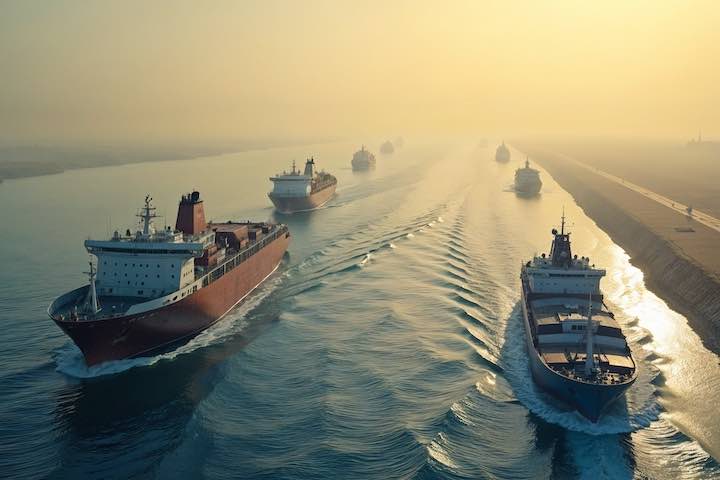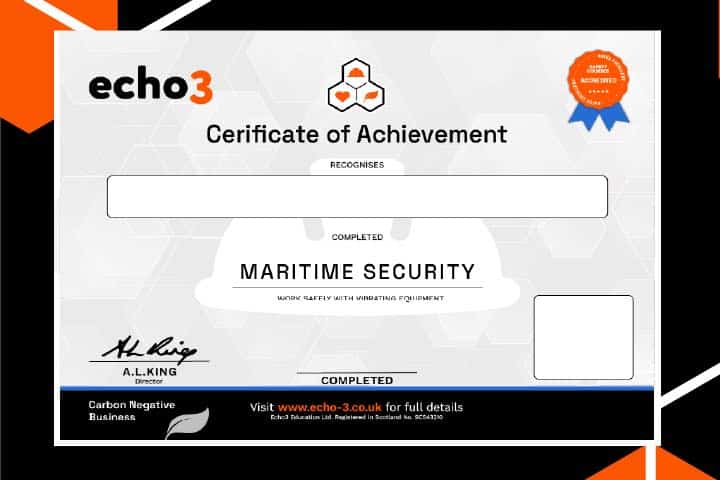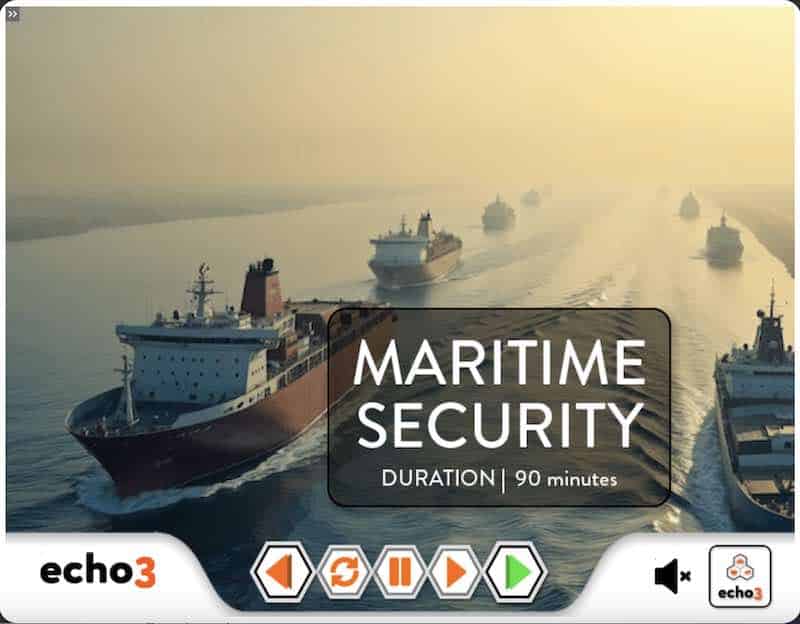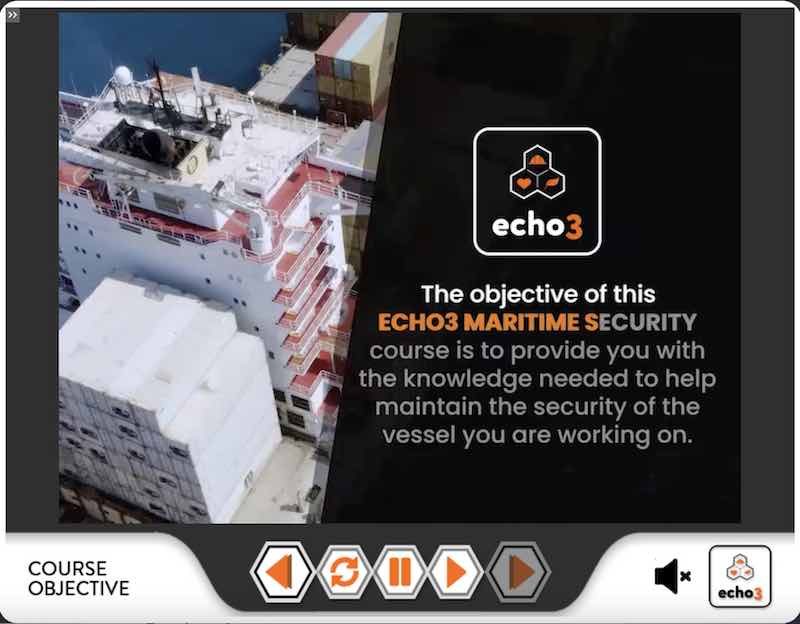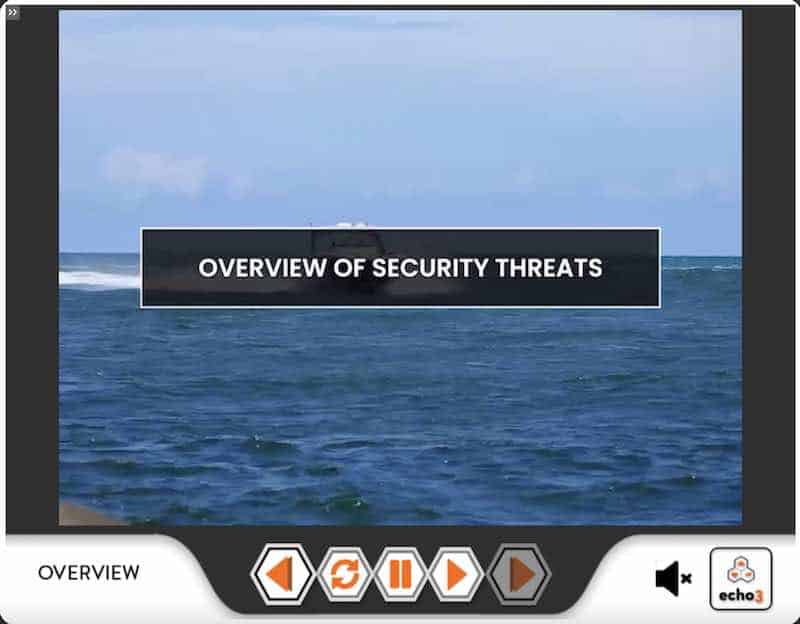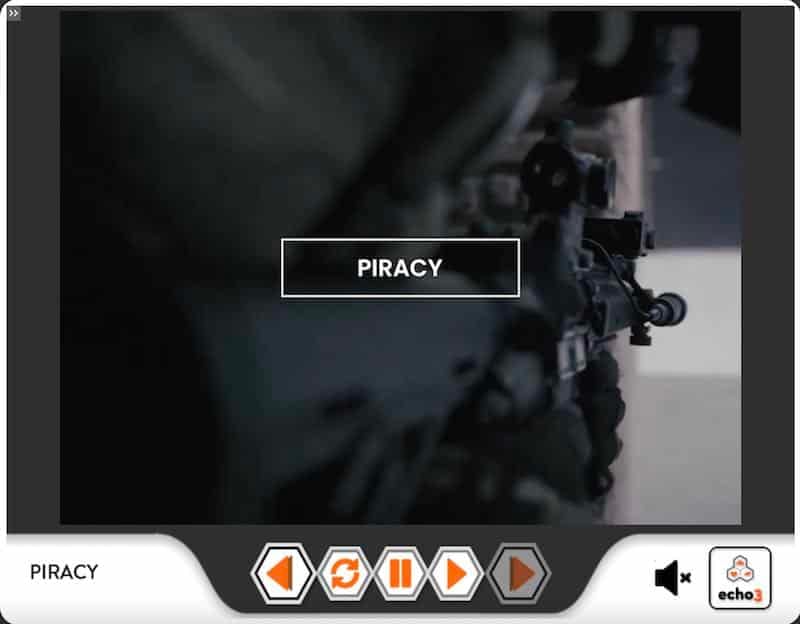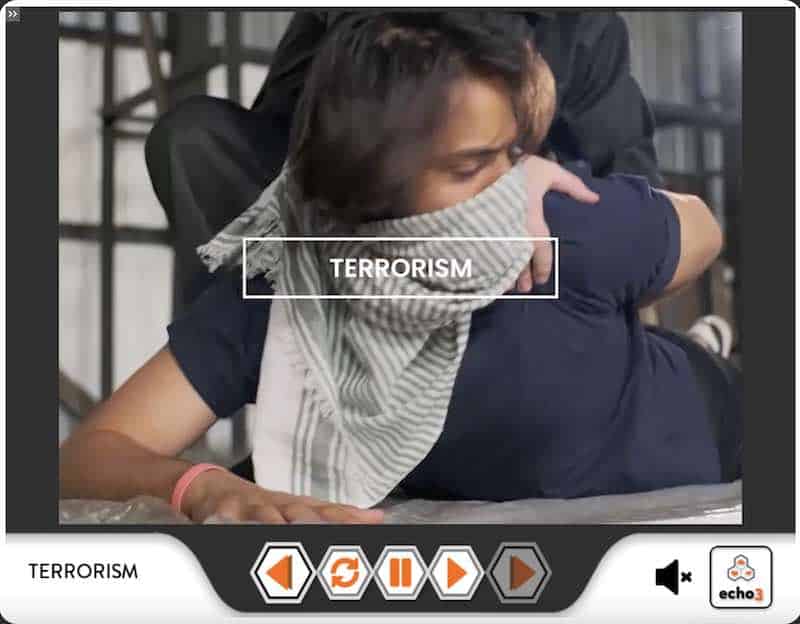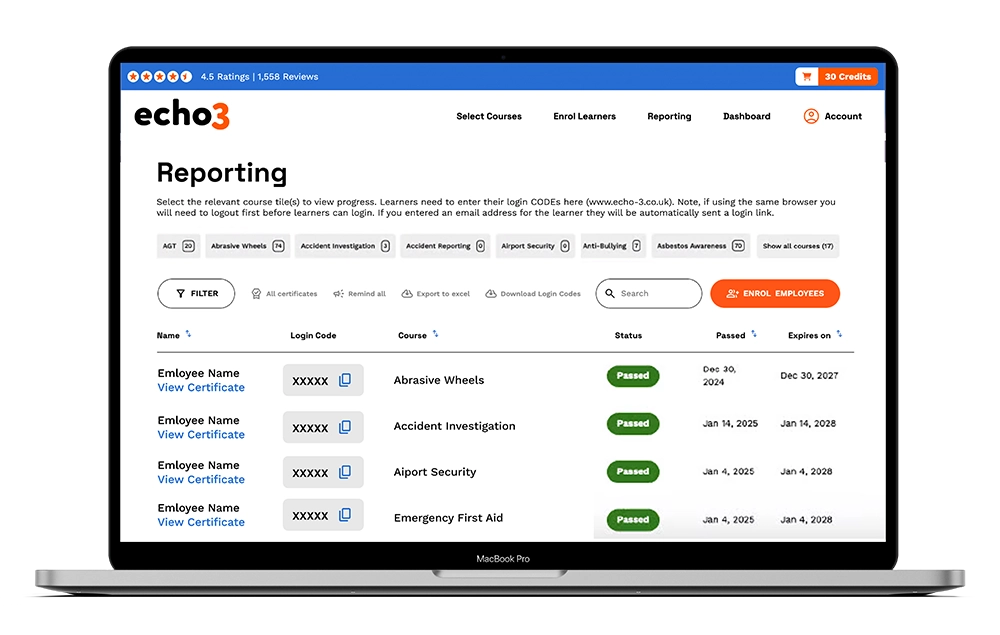Maritime Security Course
Online Maritime Security course for all seafarers without designated security responsibilities.
Concern about the increase in violence against shipping has been growing since 1979. Since then there have been incidents that could have been prevented had security training for all seafarers been in place.
So, security familiarisation training is important.
This Maritime Security course aims to fulfil the statutory security training requirement of the STCW 2010 regulation.
This international regulation requires that seafarers without a specific designated security responsibility must still receive some security familiarisation training.
Course Content
UNIT 1 – Introduction
UNIT 2 – Overview of Security Threats
UNIT 3 – Maritime Security Rules & Codes
UNIT 4 – Security Roles & Responsibilities
UNIT 5 – Threat Identification
UNIT 6 – Deterring Piracy
UNIT 7 – MARSEC Levels
UNIT 8 – Appropriate Threat Responses
UNIT 9 – Security Drills
Maritime Security Certificate
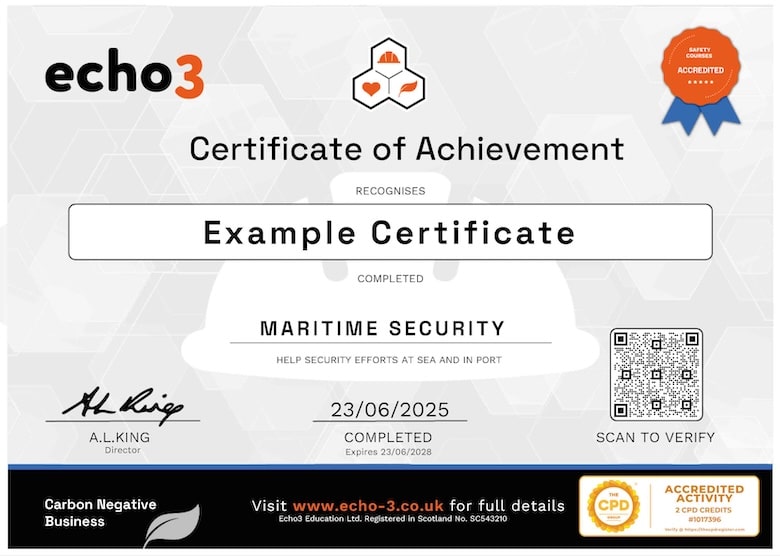
Download and Print Your Certificate
- Written in compliance with the STCW Regulation
- Developed by qualified health and safety professionals
- Accredited by CPD – learn more about CPD here
- Last Updated June 2024
- To gain the certificate you must complete the assessment which involves 20 questions.
- The online Maritime Security certificate is valid for 3 years.
Course Preview
Echo3 courses include engaging motion-graphic video content, with full english subtitles
Reviews
How to Get Certified in 3 Steps
Individual Learners


Benefits for Individuals
-
Engaging video-based content
-
Learner dashboard included
-
Instant access after payment
-
Free course retakes
-
Shareable digital certificate
 QR Code Certificate
QR Code Certificate




Bulk Buying Discounts
What are the objectives of Maritime Security training?
The objective of the Maritime Security course are to;
- Provide the knowledge needed to contribute to the enhancement of maritime security through heightened awareness.
- Enable seafarers to recognise security threats;
- Enable seafarers to understand the need for, and methods of, maintaining security awareness and vigilance.
What are the threats to maritime vessels?
Common threats the maritime industry must face include;
Piracy
The term piracy encompasses two offences. Robbery or Hijacking and Kidnapping.
The International Maritime Bureau (IMB) is the world’s leading agency for maritime crime information.
In 2022 the IMB reported 115 incidents of piracy and armed robbery against ships – compared to 132 in 2021 – with half of them occurring in Southeast Asian waters, particularly in the Singapore Straits, where incidents continue to rise.
Many incidents are believed to go unreported, especially if the loss is not significant.
Terrorism
Maritime terrorism is the unlawful use of violence and intimidation.
The attacks on USS Cole in 2000, MV Limburg in 2002, MV SuperFerry 14 in 2004 and the M Star in 2010 are all classified as acts of ‘Maritime Terrorism’.
They provide a stark reminder that the world’s waterways continue to be vulnerable and seafarer vigilance is needed.
Smuggling
Contraband smuggling is the transportation of illegal goods, most commonly drugs and weapons, into or out of a country.
A ship caught smuggling contraband could face confiscation, investigations, and detentions.
For the crew interrogations, criminal conviction and imprisonment are all possible.
Large financial losses to the ship owner are also possible.
Stowaways
Stowaways are people who hide aboard a ship to travel for free.
The presence of stowaways on board ships may bring serious consequences. The life of stowaways could be endangered as they may spend several days hidden, with the risk of suffocation and without any water or provisions.
The ship can be delayed in port because the repatriation of stowaways can be a very complex and costly procedure involving masters, shipowners, port authorities and agents.
In 2023 there were 345 incidents reported involving 892 stowaways (IMO).
Cargo Theft & Collateral Damage
Lost or stolen cargo is estimated to cost the maritime industry around 50 billion dollars each year.
This maritime security course will provide your seafarers with the knowledge needed to reduce the chance of each of the threats above.
What are the rules related to maritime security?
Maritime Security rules are the widely accepted requirements, developed over time with the aim of keeping everyone safe.
There are some key rules, technically they are referred to as conventions, treaties, or regulations, that you need to be aware of which we outline in this course.
Security Rules have been amended over time depending on the changing threats.
Rules come from various organisations for example the IMO (International Maritime Organisation). All governments that are members of the IMO agree to implement and enforce the rules.
The main maritime rules are called;
SOLAS
In 1912, the Titanic sank after hitting an iceberg. Over 1,500 people drowned due to a lack of lifeboats. The Titanic had 2,224 people on board, but nowhere near enough lifeboats. The total lifeboat capacity was only 1,178.
The ship’s crew was also inadequately trained for such an emergency.
Safety rules were needed. So in 1914, the first version of the Safety of Life at Sea convention was adopted in response. This convention is known as SOLAS.
MARPOL
As the world’s economy grew, so did the demand for oil. Oil tanker incidents and oil spills started to increase.
The Torrey Canyon incident in 1967 was one of the worst incidents and became a catalyst for new rules.
The Torrey Canyon incident led to around 36 million gallons of crude oil being spilt off the coast of the United Kingdom.
So in 1973, the International Convention for the Prevention of Pollution from Ships known was adopted. This convention became known as MARPOL.
ISPS
ISPS refers to the International Ship and Port Facility Security Code.
ISPS is actually an amendment to the wider SOLAS convention and came into force on July 1st 2004
STCW
STCW stands for the ‘Standards of Training, Certification and Watchkeeping’ for Seafarers with the goal of enhancing safety.
Amendments to training requirements were introduced in 1995 and again in 2010. The 2010 amendments are often referred to as the Manila amendments.
The 2010 amendment introduced the need for all seafarers to receive security training.
Which is the purpose of this Maritime Security course.
IMO 1334
IMO 1334 is a circular that includes guidance to ship owners and ship operators, ship masters and crews on preventing acts of piracy and armed robbery against ships.





